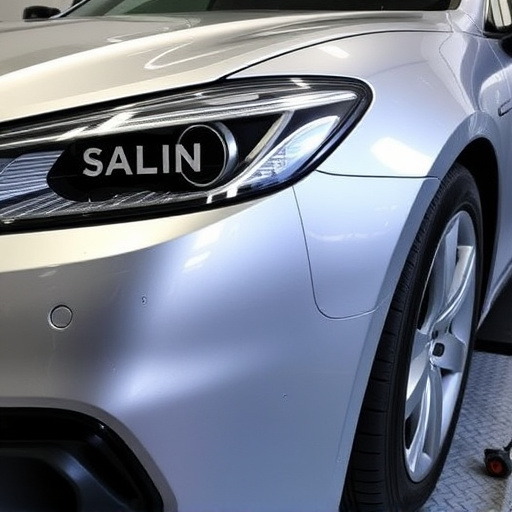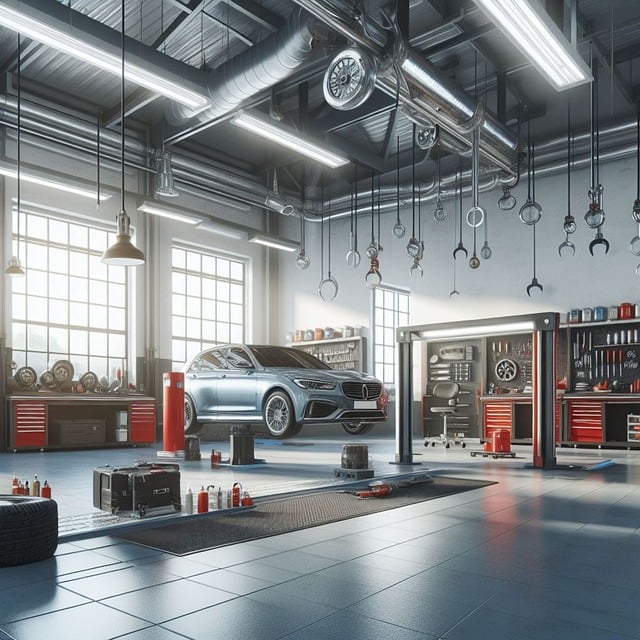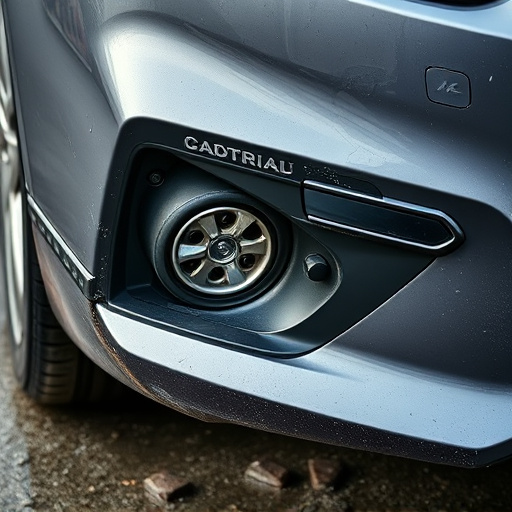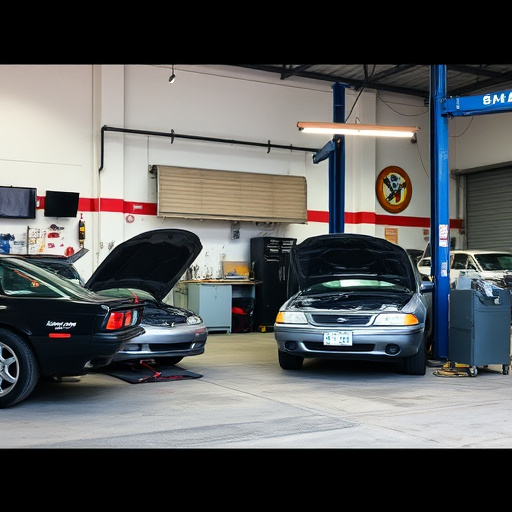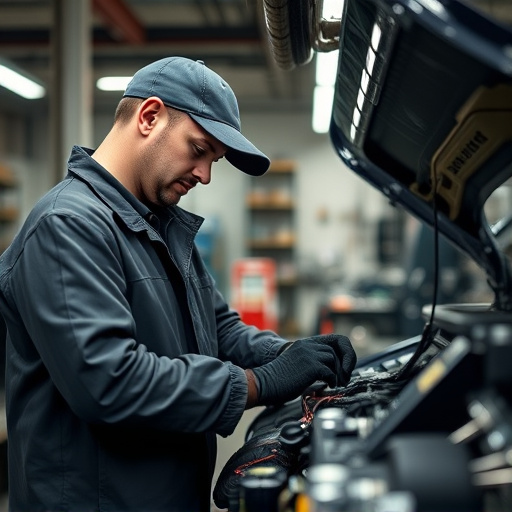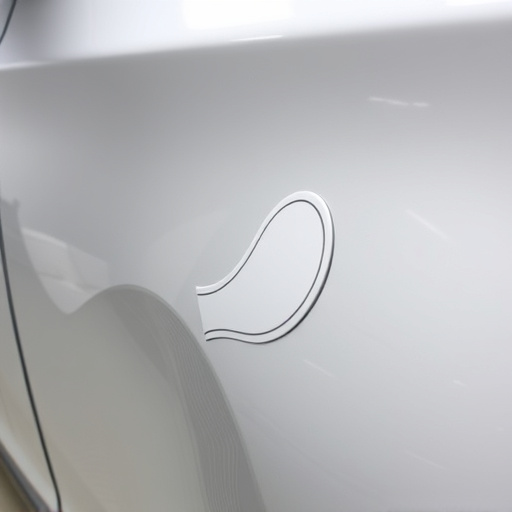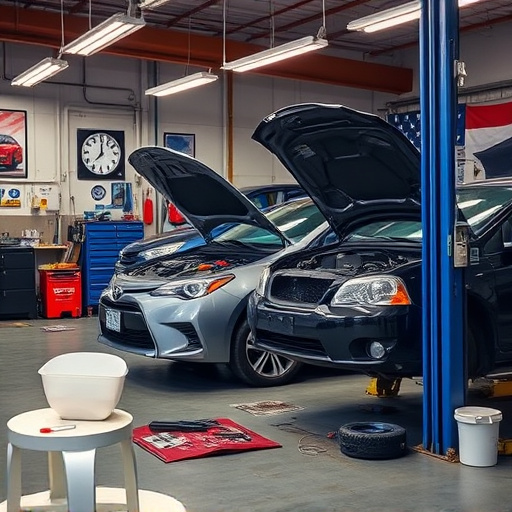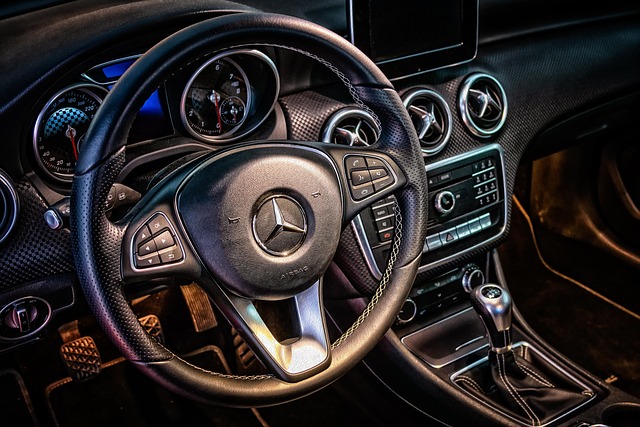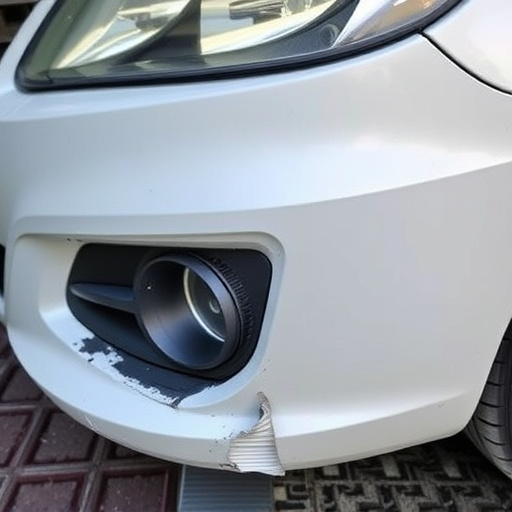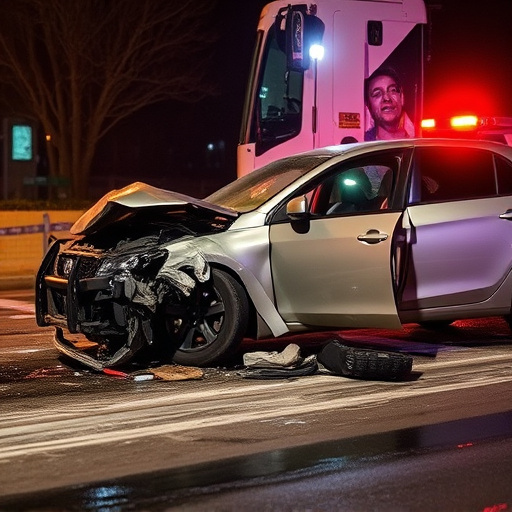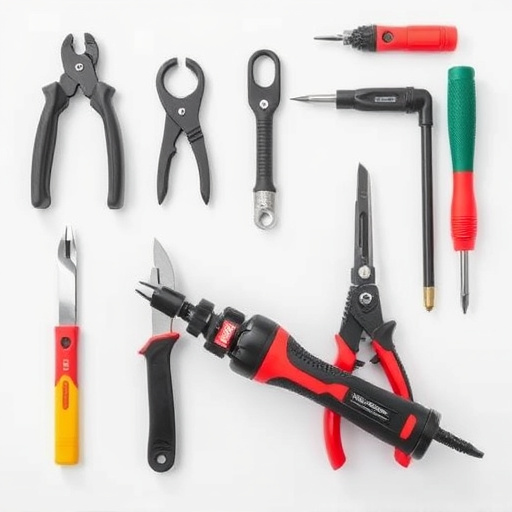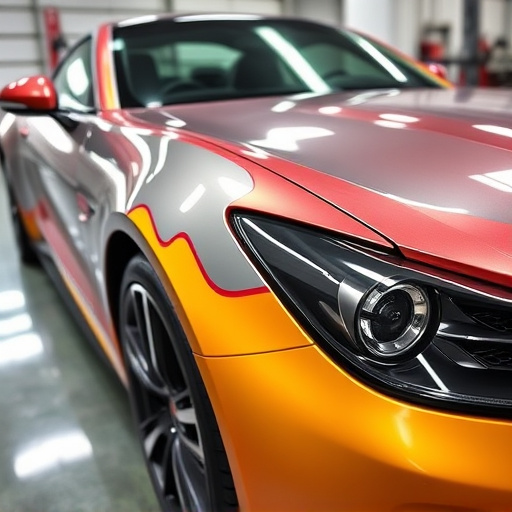Professional collision repair leverages advanced technology and precise calibration to ensure vehicle safety and performance. Technicians use cutting-edge equipment for airbag, ABS, and ESC calibrations, while meticulous paintwork and dent removal restore aesthetics. Sensor adjustments guarantee optimal system response during accidents, adhering to strict industry standards through top-tier auto body services.
In the realm of modern automotive maintenance, professional collision repair stands as a game-changer. Advanced safety systems, integral to today’s vehicles, demand precise calibration for optimal performance. This article delves into the intricate world of collision repair techniques and highlights the critical role of system calibration. We explore how skilled technicians navigate the labyrinthine processes, ensuring not just structural integrity but also enhanced safety features that protect folks on the road. Understanding these methods is key to appreciating the sophistication behind every repair.
- Understanding Modern Collision Repair Techniques
- The Role of Calibration in Safety Systems
- Ensuring Optimal Performance Through Precision Adjustments
Understanding Modern Collision Repair Techniques
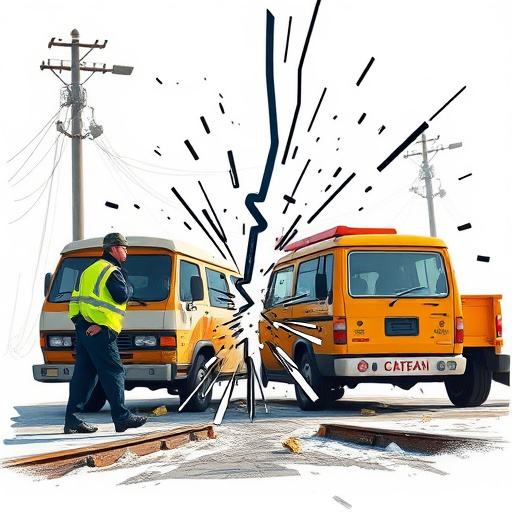
In today’s world, professional collision repair has evolved significantly with advancements in technology and safety standards. Modern collision repair techniques go beyond simple car damage repair to incorporate sophisticated systems that ensure vehicle safety and performance. Repair professionals now have access to cutting-edge equipment and training, allowing them to accurately calibrate advanced safety systems such as airbags, anti-lock braking systems (ABS), and electronic stability control (ESC). This precise calibration is crucial for restoring vehicles to their pre-accident condition, ensuring not just cosmetic fixes but also the optimal functioning of critical safety features.
The process involves meticulous attention to detail in car paint services and car dent removal, among other repairs. Skilled technicians use specialized tools to adjust sensor calibrations and fine-tune electronic components, guaranteeing that every system operates at peak efficiency. This commitment to excellence is especially vital for maintaining the structural integrity and overall safety of modern vehicles, which are designed with intricate networks of sensors and control units working in harmony. By combining advanced repair techniques with meticulous calibration, professionals in the field ensure that repaired vehicles meet not just aesthetic standards but also stringent safety regulations.
The Role of Calibration in Safety Systems
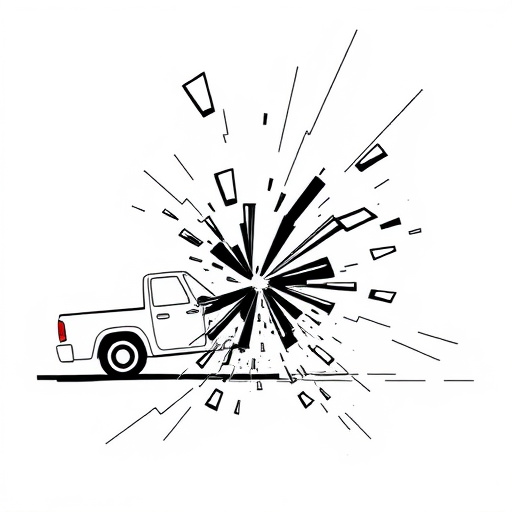
In the realm of professional collision repair, calibration plays a pivotal role in ensuring the safety and effectiveness of advanced safety systems found in modern vehicles. As car manufacturers incorporate more sophisticated sensors and technologies into their designs, proper calibration becomes essential to guarantee optimal performance. This meticulous process ensures that every component, from airbag deployment mechanisms to brake assist systems, functions precisely during an accident, significantly reducing the risk of secondary damage and enhancing overall passenger safety.
Through advanced auto body services, calibration allows technicians to meticulously adjust and fine-tune these safety systems, accounting for any variations or discrepancies that may arise due to car damage repair. By standardizing and synchronizing sensor responses, calibrated systems can react swiftly and accurately to a variety of collision scenarios, making them indispensable in the intricate dance of car collision repair.
Ensuring Optimal Performance Through Precision Adjustments
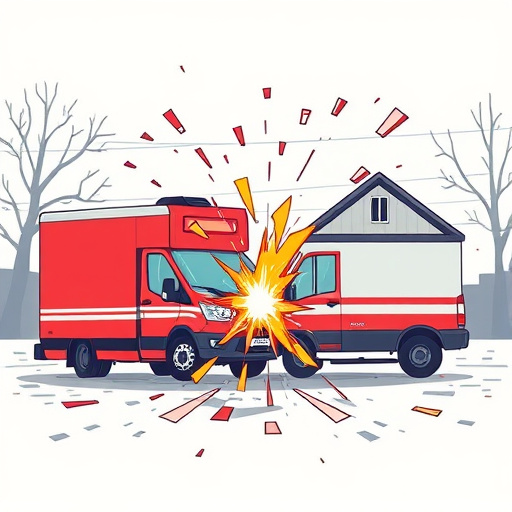
In the realm of professional collision repair, precision is paramount. Skilled technicians understand that every component of a vehicle’s structure and safety systems must be meticulously adjusted to ensure optimal performance after an accident. This meticulous process involves calibrating advanced safety systems like airbags, anti-lock braking mechanisms (ABS), and electronic stability control (ESC), requiring the expertise found in top-tier auto repair shops.
By employing cutting-edge tools and following strict industry standards, auto repair services can make fine adjustments to car bodywork, restoring it not just to its pre-collision state but beyond. These precision adjustments not only guarantee safety but also enhance the overall driving experience, ensuring that every trip is as smooth and secure as possible.
Professional collision repair goes beyond mere vehicle restoration; it involves integrating advanced safety systems through precise calibration. By understanding modern repair techniques and the critical role of calibration, we ensure optimal performance and enhanced safety on the road. This precision is key to not only protecting lives but also maintaining the highest standards in the automotive industry.
